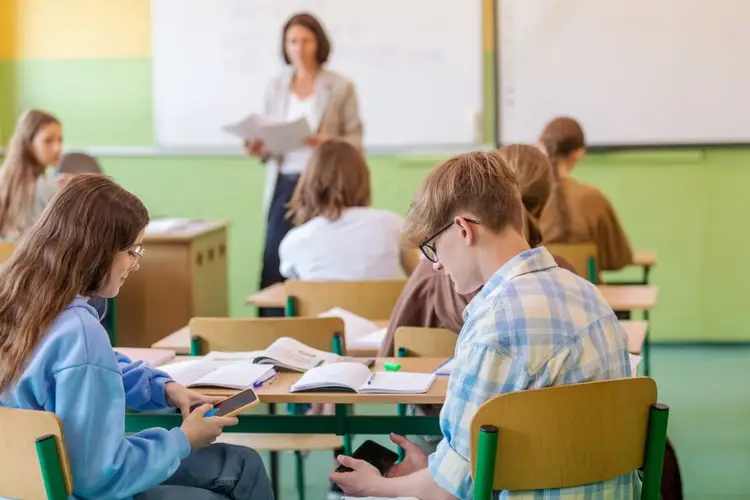Rude behaviour spiked in Ontario classrooms after COVID-19: Brock research

Recent research from Brock University indicates that after schools closed due to the COVID-19 pandemic, there was a rise in disruptive behavior in classrooms across Ontario.

Rudeness can manifest in various ways: sending messages instead of paying attention to a teacher, cutting off classmates while they are talking, or arriving late to class.
According to Natalie Spadafora, after an unprecedented time of remote learning caused by the COVID-19 pandemic, there has been a noticeable increase in similar types of disruptive behavior in classrooms across Ontario.
A Postdoctoral Fellow from Brock University and her team studied the level of disruptive behavior in elementary and high schools before and after the pandemic-related closures. They found a notable rise in such behavior.
Their research is outlined in the newly released article titled "Have children and teenage students become more impolite after COVID-19?"
The research group carried out two distinct studies involving participants from Ontario. They collected data from 308 teenagers between the ages of nine and 14, alongside 101 elementary school teachers working with students in Grades 1 to 3.
Brock University Postdoctoral Fellow Natalie Spadafora notes that there has been a rise in disrespectful behavior in Ontario classrooms since the schools were closed due to the COVID-19 pandemic.
They analyzed information from the fall of 2019 and compared it to data gathered in the fall of 2022 to understand how the pandemic shutdowns influenced the behaviors of young learners.
"Teachers have noted that disruptive behavior has increased significantly in their classrooms since the COVID-19 school closures, and they also mentioned a decline in understanding of what is expected in the classroom," Spadafora explains.
Teenagers reported experiencing much more disruptive behavior in the classroom during the 2021-22 school year. In contrast, other factors like bullying and friendships didn't show significant changes.

In a review of past data, 42% of teachers involved in the project indicated that they experienced rude behavior in classrooms on a daily basis, a significant increase from just 6% before March 2020. Additionally, during the 2021-22 school year, 68% of teachers described classroom incivility as "moderately" or "very" serious, whereas only 32% felt the same way before the pandemic.
"Teachers mentioned a widespread absence of respect, noting that students often ignored instructions and didn’t seem to care about the impact of their actions in class," Spadafora explains. "A lot of students seemed to be missing the fundamental aspects of polite behavior in the classroom."
The pandemic led to the closure of schools in Ontario for roughly 100 days, which resulted in children missing out on the usual school schedule, standard classroom behaviors, and guidance from teachers in a traditional learning environment.
According to Spadafora, the early school years are crucial for setting up routines, behaviors, and expectations in the classroom. She notes that we are now beginning to see the effects of the disruptions to conventional learning.
Numerous teachers mentioned that students weren’t given the chance to grasp—and educators didn’t get the opportunity to reinforce—the “rules” of the classroom that become increasingly important as students advance to higher grades.
"These children didn't experience the initial days of school where they learn basic classroom behavior," Spadafora explains. "As a result, we're noticing behaviors in Grade 3 that we usually wouldn't expect."
Educators highlighted that many students are struggling with social skills and self-control, noting a rise in children who aren’t familiar with being part of a team. As a result, teachers have had to step up their efforts to teach students how to interact positively and collaborate effectively with their peers, according to Spadafora.
Almost all teachers — 95 percent — indicated that students' social and emotional skills were "lower" or "significantly lower" compared to previous groups.
Spadafora emphasizes the need to be aware of these behaviors since earlier studies conducted by her team have shown that rudeness can lead to bullying.
“If rude behavior has increased since the pandemic, and it’s a known predictor of bullying, we need to take action to address these minor issues more frequently,” she explains.
She urges parents to discuss etiquette and politeness with their kids.
“It all begins with showing kindness and respect,” she explains. “If you can instill this fundamental value in your children, you’re giving them a strong base from which they can grow as they enter the school environment.”
Spadafora's team intends to investigate if the increase in disrespectful behavior has persisted after the COVID-19 school closures, especially among younger people.















































